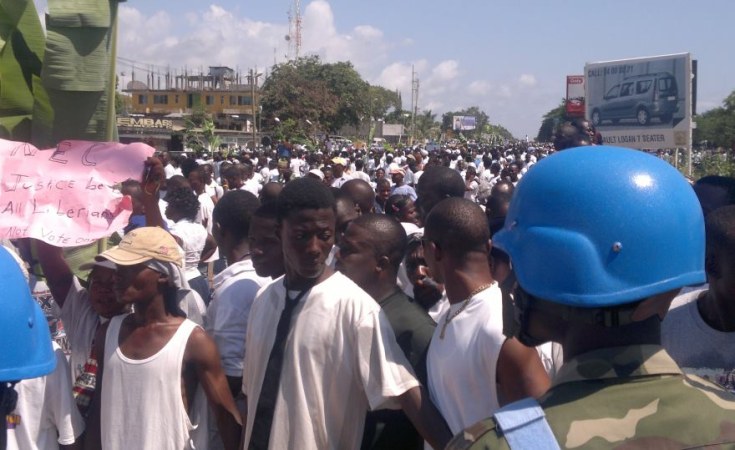Monrovia — Voting in Liberia's presidential run-off election began peacefully on Tuesday, despite clashes the day before between the police and supporters of the opposition Congress for Democratic Change. Some polling stations across the country are reported to have a high turnout of voters, while at others people are apparently trickling in.
Winston Tubman's Congress for Democratic Change withdrew from the run-off, alleging that the process will be fraudulent - a claim disputed by local and international observers.
Callers on local radio stations have urged voters to cast their ballots. Overnight at least three radio stations, which the government accused of airing "inflammatory rhetoric", were shut down. Speaking to the West Africa Democracy Radio earlier this morning, Love FM News Director Jallah Gritfield said the station was in the middle of its late evening news when police officers carrying a "letter from the court" asking them to vacate the premises before officers locked the entrance to the station.
Despite their decision to boycott the poll, the CDC's Winston Tubman is still on the run-off ballot paper, along with President Ellen Johnson Sirleaf of the Unity Party, and their respective running mates. The National Elections Commission says the legal time frame for pulling out of the run-off poll has passed. A statement from the commission says in order to withdraw, "candidates must submit the forms no later than forty-eight hours before the publication of the final list of candidates". The publication of the list of presidential candidates took place in September, before the first round of the election.
U.S. President Barack Obama has urged Liberians to go to the polls "without fear of violence or intimidation". Obama said the "United States is deeply committed to its historic relationship with Liberia", while reiterating a warning that the international community will hold accountable "those who choose to obstruct the democratic process".
With radio talk show hosts emphasizing the American president's message, it appears to have given the process an added boost, with many persons turning out, even though the long queues that were so ubiquitous in the first round of voting are missing. However, officials of the Elections Commission are attributing this to the fact that citizens now have to choose between two candidates for the presidency, and not vote for senators and representatives as well.


